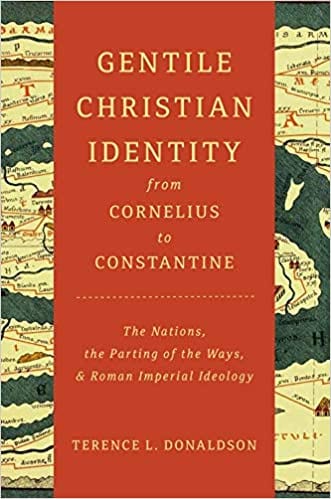Q. How then do we move forward, taking all this into account?
A. One way of moving forward is to say that this approach doesn’t make the kind of sharp distinction between scripture and tradition that has often been made. The church in each subsequent historical and cultural context has necessarily been engaged in the same three-level enterprise of social world construction and maintenance: proclaiming and articulating the gospel as the convictional core of the church’s identity; engaging in the ongoing process of identifying questions (some of them perennial, others newly arisen) that require attention if the church is to maintain its identity and vitality, and of wrestling theologically with these questions in light of the gospel; and dealing with contingent circumstances that vary from church to church and age to age.
This is by no means intended to deny the role of the canon or to minimize the distinction between the foundational generations of the church and the generations to follow. The church has always recognized that these writings, in keeping with their association with the foundational apostolic generations, come with a revelational authority that sets them apart from the writings of subsequent eras. (In my view, the revelational intensity increases as one approaches the convictional core and, through it, the foundational experiences that lie at their base.) Still, these writings don’t provide us with final answers for questions that were on the theological agenda of the church in its initial generations; nor do they provide ready-made answers for questions that emerge in subsequent eras. Rather, what they provide are the resources for the ongoing task: witness to the core convictions of the gospel; records of the foundational theological explication carried out in the apostolic era, which provided models, directions and norms for subsequent theological development; instructive case studies from the contingent experiences of early Christ-communities.
In addition and finally, I suggest that the scriptures also provide us with examples of living with theological tension. For me the most poignant New Testament example is found in Paul’s epistle to the Romans. The logic of Paul’s argument up to chapter 11 might seem to suggest that the story of his “kindred according to the flesh” (9:3) had run its course and come to an end. But at this point Paul shows himself prepared to live with unresolved tension rather than to sacrifice his people and God’s promises to the logic of his argument. God’s judgments may be “inscrutable” (11:33) but after Paul has done his best to search them out he is content in the end to leave it to God to deal with God’s own unfinished business. The church in our own day may be well advised to do the same. (This paragraph drawn from the final chapter of my Jews and Anti-Judaism in the New Testament.)













